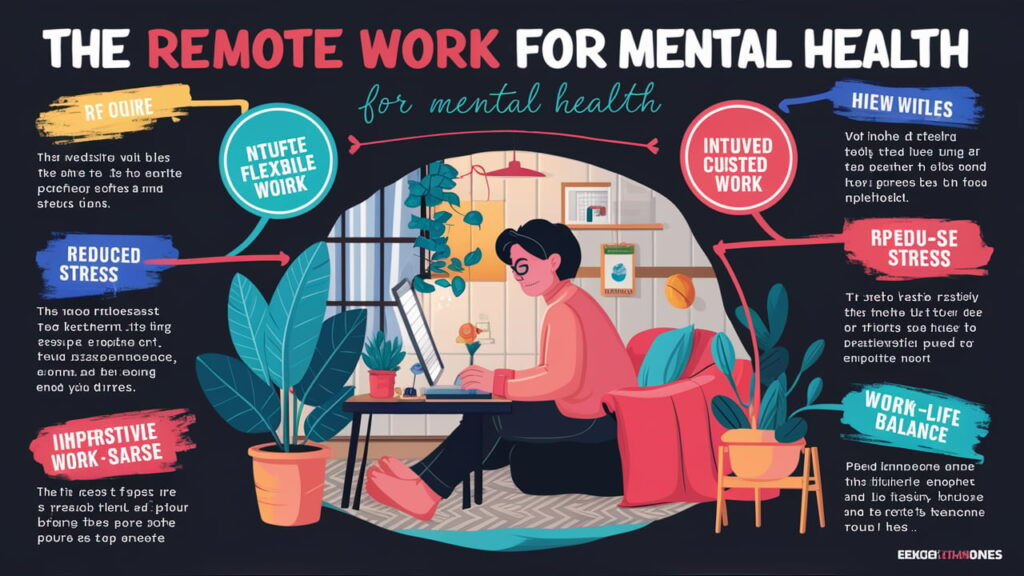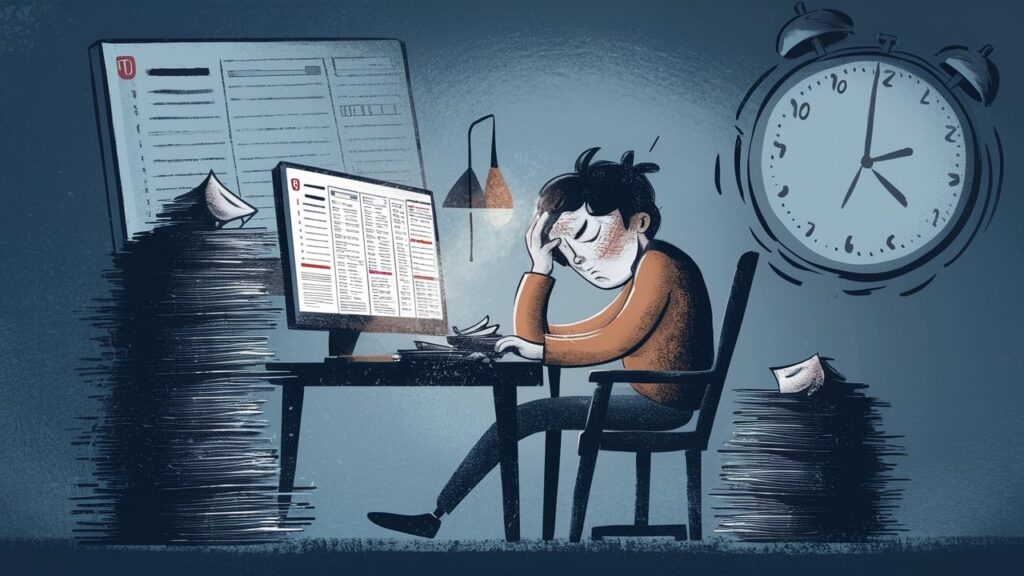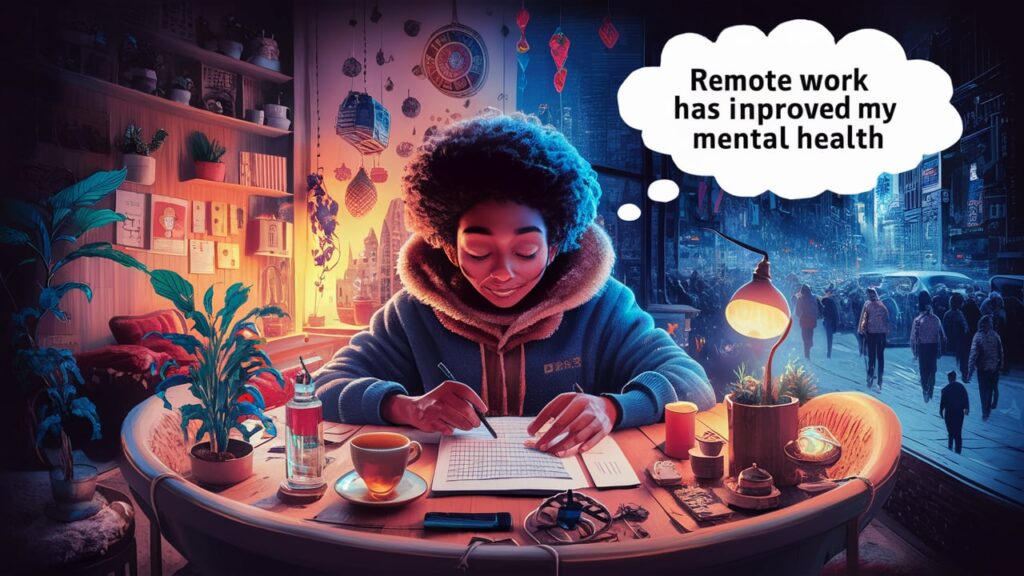
Remote work has reshaped how we view our professional lives and its impact on mental health is profound and multifaceted. In this comprehensive blog post, we’ll delve into how transitioning to telecommuting can influence your mental well-being either positively or negatively. You’ll discover strategies to harness these effects beneficially, understand potential pitfalls, and learn how to create a balanced fulfilling remote work life.
Introduction to Remote Work and Mental Health
Remote work has been both good and bad for many people. While it offers flexibility and eliminates commuting stress, it also ushers in challenges such as social isolation and blurring of work-life boundaries. Understanding these dynamics is crucial to leveraging remote work for a healthier, happier life.
The Upsides of Remote Work for Mental Health

Remote work isn’t just about staying in your pajamas all day; it has tangible benefits for your mental well-being:
Flexibility and Work-Life Balance
- Control over schedule: Choose working hours that align with your personal productivity peaks.
- Family time: More chances to be with loved ones.
Reduced Commute Stress
- Saving time and money: Less time stuck in traffic means more time for self-care.
- Decreased exposure to commuter stress: Avoiding the rush hour can lower cortisol levels, reducing overall stress.
Tailored Work Environment
- Comfort: Customize your workspace to suit personal comfort and productivity needs.
- Healthy lifestyle: More freedom to incorporate exercise and a balanced diet into daily routine.
The Downsides of Remote Work for Mental Health

However, remote work is not without its challenges that can strain mental health:
Is Ryhsha
- Social isolation: Lack of in-person interactions can lead to feelings of loneliness and isolation.
- Reduced teamwork dynamics: Harder to build rapport and engage in spontaneous team collaboration.
Work-Life Boundary Issues
- Overworking: Without a set off time, it’s easy to work longer hours.
- Home distractions: Family responsibilities and home chores can overlap with work tasks.
Stress from Continuous Digital Communication
- ‘Always on’ culture: The expectation to always be available can lead to burnout.
- Information overload: Constant emails, messages, and video calls can be overwhelming.
Balancing Remote Work for Better Mental Health

Here’s how you can strike a healthy balance:
Setting Clear Boundaries
- Designated workspace: A set area just for work
- Regular breaks: Incorporate short breaks to avoid burnout and keep productivity levels high.
Maintaining Social Connections
- Regular check-ins: Virtual coffee breaks with colleagues can boost morale.
- Professional networks: Join online forums and groups to stay connected.
Embracing Flexibility Responsibly
- Structured flexibility: Set clear times for work and relaxation.
- Prioritization: Tackle key tasks when most focused.
Personal Anecdote

When I first started working remotely, the initial thrill of skipping my daily commute quickly faded as I found myself working late into the night, struggling to shut off from work mode. Setting up a dedicated workstation and getting into a routine of starting and ending my day at fixed times turned this around for me. Now, I’m not only more productive but also happier and more relaxed.
Conclusion
Remote work can massively benefit or hamper your mental health, depending on how you manage its challenges. By setting boundaries, maintaining social connections, and using flexibility wisely, you can enjoy the perks of working from home without letting it dominate your life. Remember, like any major lifestyle change, it takes time and effort to find what works best for you. So, give yourself the grace to adjust and find your best rhythm.
Forbes: The Impact of Remote Work on Mental Health
Harvard Business Review: How to Support Your Mental Health When Working from Home
Psychology Today: Remote Work and Mental Health
Mayo Clinic: Tips to Manage Mental Health When Working From Home
American Psychological Association: The Future of Remote Work

